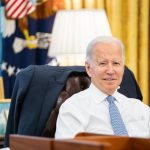The COVID-19 pandemic has left an indelible mark on the world, but its origins remain shrouded in controversy and political intrigue. At the center of this debate is Dr. Anthony Fauci, who, in 2017, publicly predicted that the Trump administration would face a surprise infectious disease outbreak. Critics have seized on this statement to allege foreknowledge of the pandemic and suggest deeper ties to gain-of-function research—a controversial scientific method that enhances viruses for study. While Fauci has repeatedly denied funding such research for SARS-CoV-2, documents and testimony have raised questions about NIH-funded projects at the Wuhan Institute of Virology (WIV).
The lab leak theory has gained significant traction among conservatives, bolstered by testimony from Dr. Robert Redfield, former CDC director, who asserted that gain-of-function research was conducted at WIV and likely led to the virus’s accidental release. Redfield’s exclusion from early pandemic calls further fueled suspicions of a coordinated effort to suppress alternative narratives about COVID-19’s origins. Intelligence reports have since indicated that evidence supporting a lab-related incident outweighs that of natural spillover, though agencies like the CIA assign “low confidence” to their findings due to China’s lack of transparency. Conservatives argue that this suppression reflects a politicized effort to protect U.S.-China relations and shield bureaucratic missteps from scrutiny.
Fauci’s role in pandemic preparedness has also been scrutinized for its alignment with globalist approaches to health crises. His advocacy for international collaboration and funding for EcoHealth Alliance—a group tied to WIV—has been criticized as emblematic of bureaucratic overreach and misplaced priorities. Conservatives view this as part of a broader pattern where unelected officials like Fauci wield disproportionate influence over public policy while avoiding accountability. Calls for investigations into NIH funding practices reflect conservative demands for transparency and reform within federal agencies.
The politicization of COVID-19 further complicates efforts to uncover the truth. During Trump’s presidency, Democrats weaponized the pandemic as evidence of his alleged incompetence, while Trump supporters accused the “deep state” of using the crisis to undermine his administration. This partisan framing has clouded public discourse, with conspiracy theories proliferating on both sides. Conservatives argue that the media’s dismissal of the lab leak theory as fringe speculation initially stifled legitimate inquiries into China’s culpability and U.S. funding ties to WIV—a failure they attribute to ideological bias rather than scientific consensus.
Ultimately, the debate over COVID-19’s origins underscores deeper tensions about trust in government institutions and global health governance. For conservatives, this issue is not just about assigning blame but about ensuring accountability and safeguarding national security against future pandemics. As investigations continue, many hope that exposing bureaucratic failures will lead to meaningful reforms that prioritize American interests over globalist agendas—a step toward restoring faith in public institutions amidst growing skepticism.




